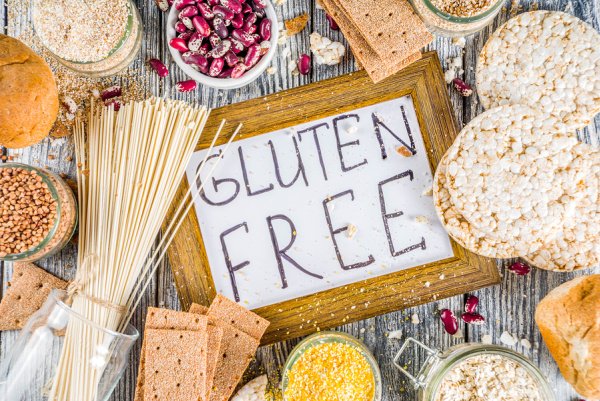What foods and food products can a person with celiac disease eat, and which ones should they avoid? If you are celiac, find out which are the safest foods.

The celiac disease is an intestinal disease that affects genetically predisposed individuals when eat foods containing gluten. Gluten is a protein that is part of the flour of cereals, such as barley, wheat, oats and rye.
At the moment in which gluten is in contact with the intestinal mucosa, a series of immune-based inflammatory reactions arise, and can even cause serious damage to the small intestine, which is responsible for the absorption of nutrients from what we eat every day.
Therefore, when you have celiac disease it is essential to know what foods the person with celiac disease can eat. And it is that avoiding foods that contain gluten (as we will see, a protein that we find naturally present in cereals such as wheat, barley and rye) is essential for an adequate treatment of celiac disease.
Thus, when gluten is completely eliminated from the diet of the person with celiac disease, it helps to improve symptoms, alleviating the damage caused to the small intestine, and also helps prevent further damage to the body over time.
What foods can a celiac eat?
The key is to avoid those foods that contain gluten. This does not mean that the person with celiac disease cannot follow a well-balanced, balanced and varied diet. For example, it is possible to safely consume healthy and nutritious foods such as fruits and vegetables, legumes, potatoes, rice, meat, seafood and fish.
It is also possible to eat certain cereals in whose composition, precisely, we do not find gluten. This is the case of foods such as buckwheat, amaranth, soy or quinoa.
In the particular case of oats, although there is some controversy about its safety, in recent years there are indications that most people with celiac disease can eat moderate amounts of oats. As long as, yes, they do not come into direct contact with gluten from wheat during processing. However, we advise you to consult your doctor about whether or not it would be appropriate to include small amounts of oats in your diet.
In addition, we must not forget healthy oils such as extra virgin olive oil, extremely rich in healthy fats and antioxidants. You can also opt for sunflower or corn oil. Dairy is also safe.
In the case of bakery products, although from a nutritional point of view they are not suitable not because they are dangerous for celiac disease but because of their contribution in empty calories, saturated fats and refined sugars (such as muffins, cakes or cookies), it is evident that You could only opt for those who are gluten-free; that is, they have been specially made for people with celiac disease.
What foods cannot a person with celiac disease eat? Gluten-free foods?
Obviously, you cannot eat any food that contains gluten. That is, all flours and foods made with wheat should be avoided: white flour, white wheat, spelled, wheat germ, wheat bran…
In addition, there are certain foods that are usually made with wheat, such as: bread, pasta, cookies, couscous, cereals, beers, sauces and dressings, flour tortillas…
For this reason, it is essential that the person with celiac disease check the labels of the foods and products that they usually buy, since they will indicate whether or not they contain gluten.
What should you keep in mind when making the purchase if you have celiac disease?
When shopping, both in the supermarket and in the market, it is vitally important that you pay special attention to the following basic tips:
- Read food labels carefully, especially if this is your first time shopping. Especially pay attention to processed, canned, and frozen foods. Those that are gluten-free are safe.
- “Gluten-free” foods. Identify them on the supermarket shelves. It is certainly simple, so that in many cases you will find an icon or the phrase “gluten free” on the labeling of the food or food product.
It is true that you will notice that, as a general rule, foods labeled “gluten-free” or “gluten-free” are relatively more expensive than the same foods that contain gluten. However, naturally gluten-free foods are less expensive, so it is best to opt for this type of natural food.






























